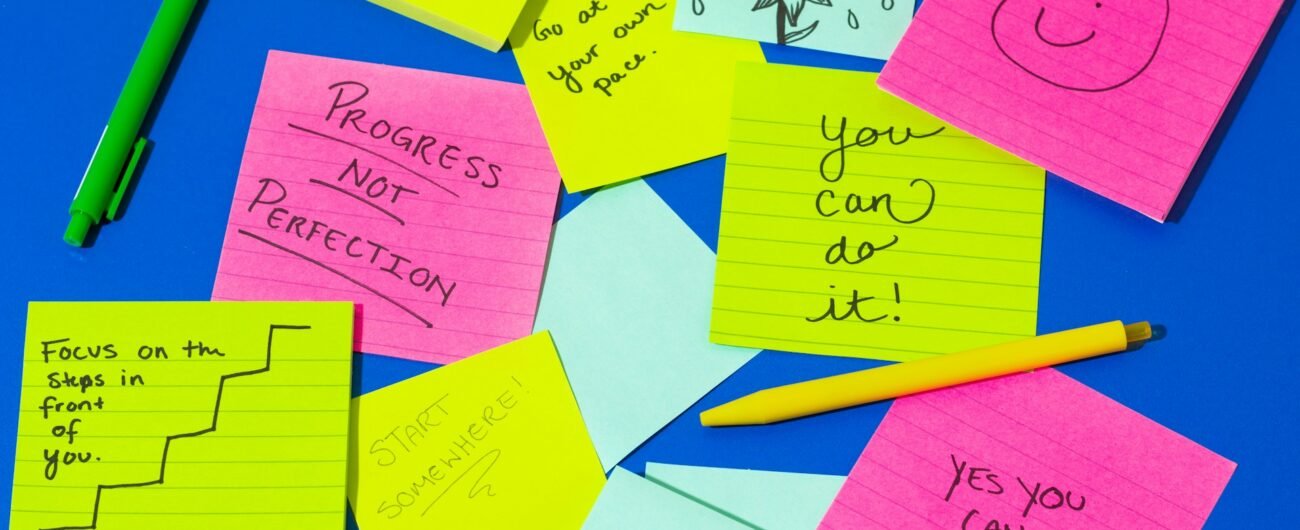Impostor syndrome is a common challenge that affects many professionals at all stages of their careers, including myself. It’s the persistent feeling of not being good enough, or believing that your achievements are not valid, despite clear evidence that you’re more than qualified.
This mental barrier can hit anyone in all walks of life, from newly established graduates to seasoned business leaders, leading to self-doubt and hesitation to do the things you know are in your best interest.
Although impostor syndrome can affect us all, research shows it’s particularly prevalent among women. A study of 4,000 adults revealed that 72% of women have experienced it in the workplace, compared to 63% of men.
Understanding and overcoming impostor syndrome is essential in building a strong personal brand. If left unchecked, it could undermine how you present yourself to others which can potentially hinder your career trajectory. But what exactly is impostor syndrome and how can it impact your ability to build a personal brand that truly reflects your abilities?
What is Impostor Syndrome?
Speaking with Vanetta Morrison, Emotional Wealth Strategist, Director of The Blueprint Way and Author of Me, Myself & Impostor, Vanetta defines impostor syndrome as “a persistent experience of inadequacy, incompetence and context-specific isolation in which objective successes are discounted or attributed to anything other than personal effort and ability”.
Impostor syndrome often manifests as a cycle of self-doubt and fear, despite evidence of success. People experiencing it might attribute their achievements to luck, timing, or external factors, rather than recognising their own hard work and talent.
This mindset can create a disconnect between how others perceive you and how you see yourself. Over time, it can limit your willingness to take on new opportunities or confidently present your ideas, which directly affects your ability to build a personal brand that truly reflects your skills, expertise, and potential.
We all need to accept that our personal history is not the same as someone else’s and that is not a weakness. In fact, it actually gives us a different vantage point which we can capitalise on as we develop our personal or professional brands. Whether you are an employee or entrepreneur, you need to learn to tell your unique story as it is core to selling yourself as a brand and therefore core to your salary negotiations or business profits.” – Vanetta Morrison
Join the £1M Visibility Blueprint
Weekly insights from my £1M personal brand journey. Strategy, visibility systems and earned media plays you can use now.
How Impostor Syndrome Affects Personal Branding
Personal branding is about showcasing your unique skills, values, and expertise to the world, particularly in a professional setting. It’s the process of shaping how you want to be perceived by others. However, impostor syndrome can undermine your efforts to build a solid personal brand in several ways.
Self-Doubt
Impostor syndrome makes it difficult to believe in your own abilities, which can prevent you from confidently sharing your successes or showcasing your expertise. When self-doubt takes over, it becomes harder to position yourself as a thought leader or subject matter expert in your field.
Personal Experience: Early in my PR career, I hesitated to apply for more senior roles, despite having strong campaigns and client relationships under my belt. I constantly questioned if I was truly qualified, which held me back.
Fear of Visibility
Impostor syndrome can lead to a fear of putting yourself out there. Whether it’s promoting yourself on social media, speaking at industry events, or applying for a leadership role, you may shy away from opportunities because of the fear of being judged or “exposed” as a fraud.
Personal Experience: For a long time, I avoided promoting my successes on social media. Despite achieving notable milestones, I felt exposed every time I shared something publicly.
Underplaying Your Achievements
Even when you achieve significant milestones, impostor syndrome can make you feel uncomfortable highlighting them in your personal brand. You may downplay or dismiss your accomplishments as unworthy of attention, which in turn can weaken the narrative you’re trying to build around your expertise.
Personal Experience: When I was named in PRWeek’s 30 Under 30, I downplayed it. It took time for me to realise that sharing this achievement would not only boost my credibility but also inspire others.
Procrastination and Perfectionism
Impostor syndrome often leads to procrastination, as the pressure to be perfect can make you delay taking action. The fear of making mistakes or not meeting high expectations can hold you back from pursuing personal brand goals, such as creating content, networking, or taking on new challenges.
Personal Experience: I stalled developing my platform because I wanted everything to be perfect before launching. I kept tweaking it, convinced it wasn’t ready. Once I embraced progress over perfection, I finally moved forward and have seen significant growth since launching.
Steps to Combat Impostor Syndrome
- Acknowledge and Accept Your Feelings
The first step to overcoming impostor syndrome is to acknowledge its presence. Understand that it’s normal to feel uncertain or insecure at times, but these feelings are not a reflection of your actual abilities. Accept that you may experience impostor syndrome, but remind yourself that it doesn’t define who you are.
- Reframe Your Narrative
One of the most powerful ways to counteract impostor syndrome is to reframe the way you think about your successes and achievements. Instead of attributing your accomplishments to luck or external factors, own your hard work and dedication. Shift your mindset to recognise that your skills and expertise are what got you where you are today.
- Collect and Celebrate Your Wins
Impostor syndrome thrives when you ignore or dismiss your accomplishments. To overcome it, make it a habit to regularly acknowledge your achievements, no matter how small they may seem. Keeping track of your successes – whether it’s landing a new role, completing a project, or receiving positive feedback – helps you build confidence and combat feelings of inadequacy.
- Seek Feedback and Support
If you struggle with impostor syndrome, it can be incredibly helpful to seek feedback from trusted colleagues, mentors, or peers. Sometimes, an outside perspective can help you see the value and impact of your work more clearly than you can on your own. Positive reinforcement from others reinforces the idea that you are deserving of your success.
- Take Action Despite Fear
Impostor syndrome often leads to procrastination, as the fear of not being perfect can cause hesitation. Waiting for the “right” moment can result in inaction. Overcome this by taking small, consistent steps—whether it’s posting on LinkedIn, starting a blog, or speaking at an event. The more you put yourself out there, the more your confidence will grow, and your impostor syndrome will fade. As I mentioned in my first blog, stepping into the unknown to fuel personal growth.
Moving Forward…
Impostor syndrome may be a significant obstacle to building a personal brand, but it doesn’t have to hold you back. By acknowledging your feelings, reframing your mindset, celebrating your achievements, and seeking support, you can overcome self-doubt and build a personal brand that reflects your true value.
Remember, you deserve to be recognised for your skills and accomplishments. Your personal brand is the ideal platform to confidently showcase your expertise. At the end of the day, becoming your own biggest supporter and cheerleader is crucial to success!
See you next week!






[…] Achievements: Just as I mentioned in my article covering Imposter Syndrome, don’t be afraid to share your accomplishments. Whether it’s completing a project, earning a […]